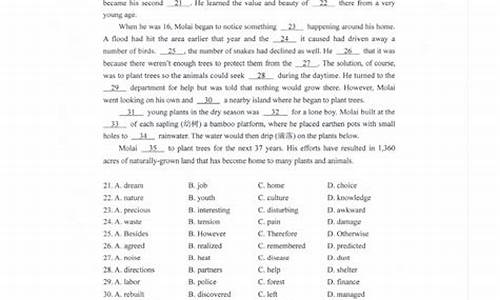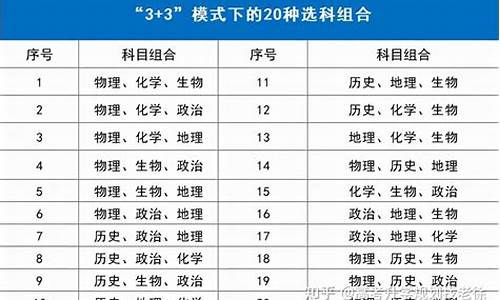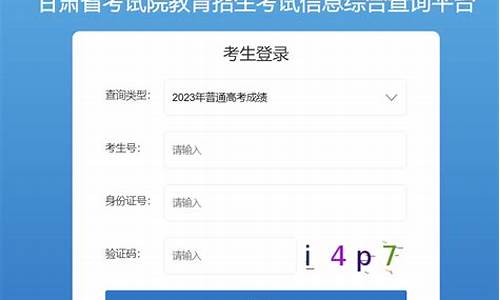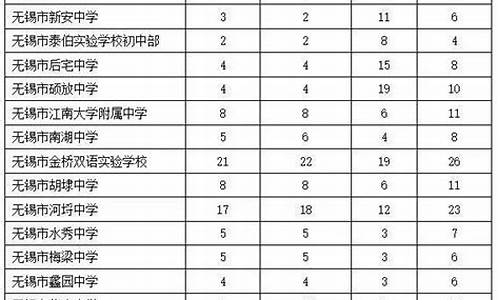您现在的位置是: 首页 > 教育研究 教育研究
英语高考真题代词_高考英语语法代词
tamoadmin 2024-06-05 人已围观
简介1.英语阅读理解的题型2.英语中的反身代词有哪些3.英语人称代词的汇总表格4.《五年高考》P1(代词6、7):英语高手请进,谢谢5.简单的英语问题6.英语中,名词,代词,介词等等的简写是什么高考英语语法:独立主格结构的七种形式 1. 名词(代词)+现在分词The question being settled, we went home. 问题解决之后,我们就回家了。 We shall play
1.英语阅读理解的题型
2.英语中的反身代词有哪些
3.英语人称代词的汇总表格
4.《五年高考》P1(代词6、7):英语高手请进,谢谢
5.简单的英语问题
6.英语中,名词,代词,介词等等的简写是什么

高考英语语法:独立主格结构的七种形式
1. 名词(代词)+现在分词
The question being settled, we went home. 问题解决之后,我们就回家了。
We shall play the match tomorrow, weather permitting. 明天假设天气好,我们就进行比赛。
The monitor being ill, we’d better put the meeting off. 班长病了,我们还是延期开会吧。
2. 名词(代词)+过去分词
The job finished, we went home. 工作结束后我们就回家了。
The last bus having gone, we had to walk home. 最后一班公车已经走了,我们必须走路回家。
More time given, we should have done the job much better. 如果给我们更多的时间,我们会把工作做得更好。
3. 名词(代词)+不定式
Nobody to come tomorrow, we will have to put off the meeting till next week. 如果明天没有人来,我们将把会议推迟到下周。
So many people to help him, he is sure to succeed. 有如此多的人来帮助他,他一定会成功的。
4. 名词(代词)+介词短语
The soldiers dashed in, rifle in hand. 士兵们端着枪冲了进来。
A girl came in, book in hand. 一个少女进来了,手里拿着书。
He was waiting, his eyes on her back. 他在等着,眼睛望着她的背影。
5. 名词(代词)+形容词或副词
He sat in the front row, his mouth half open. 他坐在前排,嘴半开着。
She sat at the table, collar off, head down, and pen in position, ready to begin the long letter. 她坐在桌前,衣领已解掉,头低了下来,拿好钢笔,准备开始写一封长信。
6. There being +名词(代词)
There being nothing else to do, we went home. 没有别的事可做,我们就回家了。
There being no further business, I declare the meeting closed. 没有再要讨论的事了,我宣布散会。
7. It being +名词(代词)
It being Christmas, the government offices were closed. 由于圣诞节的缘故,政府机关都休息。
It being a holiday, all the shops were shut. 由于今天是假日,所有商店都关门了。
注:独立主格结构有时可在其前加上介词with。如:
Don’t sleep with the windows open. 别开着窗睡觉。
He stood before his teacher with his head down. 他低着头站在老师面前。
He was lying on the bed with all his clothes on. 他和衣躺在床上。
She came in with a book in her hand. 她手里拿着一本书走了进来。
He fell asleep with the lamp burning. 他没熄灯就睡着了。
I won’t be able to go on holiday with my mother being ill. 因为妈妈有病,我无法去度假。
He sat there with his eyes closed. 他闭目坐在那儿。
All the afternoon he worked with the door locked. 整个下午他都锁着门在房里工作。
I can’t go out with all these clothes to wash. 要洗这些衣服,我无法出去了
英语阅读理解的题型
你看完书后,把书给Lucy或Helen,或谁都行。这个句子是这个意思。
填others不是句子意思不通,而是有点危险。
我觉得,首先这里没范围。others 你代指哪个人群?。
如果这本书是在老师要求同学们轮着看,对第一位同学说,When you are done with the book, just give it to Lucy or Helen or others。这里的others好歹因为有上下文,所以指代了other classmates。这个人群吧。
在什么都没有情况下。 我觉得还是whoever更好。为什么呢。
首先,假如这句话是我对你说的,对吧。我借了一本书给你,然后我对你说,如果你看完之后,可以把他给lucy or lence(这两个是我们认识的朋友) or whoever (这里就不一样了,就是,反正你看完之后,可以给别人,给谁都可以,可以是我认识的,也可以是我不认识的。)
英语中的反身代词有哪些
英语阅读理解的题型
作为高考英语试卷中题量最大、分值最多、难度最高的题型,高考英语阅读理解题在整个高中英语中至关重要。下面我整理了高考英语阅读理解的常见题型以及解题方法,大家一起来看一下吧!
高考英语阅读理解常见题型及解题方法
一、主旨大意题
主旨大意题主要考查学生对所读材料(或所读材料片断)中心思想的概括。做这类题时,考生应通读全文,把握文章大意或中心思想,同时注意文章的主题句,因为主题句表达中心思想,其他句子均围绕主题句进行展开。主题句通常位于文章第一段首句、第一段末句或全文末句等地方,但位于段落中间(通常是第一段或最后一段的中间)也是完全可能的。主旨大意题的考查形式很多,如概括标题、主题、段意、中心思想等。请看浙江卷中的一个段落:
In the course of working my way through school, I took many jobs I would rather forget. But none of these jobs was as dreadful as my job in an apple plant. The work was hard; the pay was poor; and, most of all, the working conditions were terrible.
◎What is the subject discussed in the text?
A. The writer?s unhappy school life
B. The writer?s eagerness to earn money
C. The writer?s experience as a full-time worker
D. The writer?s hard work in an apple plant
原文共有五个自然段,上面摘录的只是文章的第1个自然段,但是如果考生训练有素的话,只要读完这个段落就可猜出此题的答案了。因为文章第一句说In the course of working my way through school, I took many jobs I would rather forget,接着作者用but引出一个新的情况(即主题句):none of these jobs was as dreadful as my job in an apple plant. 再接下来又说:The work was hard; the pay was poor; and, most of all, the working conditions were terrible. 聪明的读者至此应该可以猜测到,下面的几个段落肯定是介绍这个apple plant 的work是如何的hard,它的pay是如何的poor,它的working conditions 是如何的terrible 等。比较四个选项,只有选项D所表述内容合乎上面的分析,故选D。
二、事实细节题
顾名思义,事实细节题即指针对文章的某个事实或细节而设置的试题。事实细节题的命题方法很多,如可能是对某个细节用同义结构转换后进行考查、也可能是将文章中的几个细节(通常是四个)放在一起要求考生判断是非(选出正确的一项或选出错误的一项)或对几个细节进行排序等。解答这类试题时,一个常用的方法就是运用定位法,即根据题干或选项中的线索词从原文中找到相关的句子,与选项进行比较从而确定答案(此时要特别注意一些常见的同义转换或简单换算)。请看安徽卷中的一道事实细节题:
Tuition Fees(学费)
Tuition fees are different from department to department, generally from $5,000 to $6,000 a year. For further information: tui@waikato.ac.nz
Accommodation(住宿)
You can have a room in a 4-bedrcom flat, which will cost about $100 a month with other regular living costs of about $150 a month for one person. For further information: ave@walkato.ac.nz
◎You have to pay at least ______ a year if you study at the University of Waikato.
A. $5,250 B. $8,000 C. $9,000 D. $11,000
根据Tuition fees一节的内容可知,一年的学费最低为5,000美元,再根据Accommodation(住宿)一节可知,除学费外,还有住宿费(每月100美元)和生活费(每月150美元),即一年大约共3,000美元,所以在WaiKato大学读书一年至少要花费5,000+3,000=8,000美元,故答案为B。
三、代词指代题
这类题要求考生根据一定的上下文推测代词的指代意义,它主要考查考生在一定语境中对上下文逻辑关系的正确理解。做这类题时,考生不仅要读懂相关句子的句意,理顺相关句子的逻辑关系,而且还要学会合理变通,尤其要学会变通理解其中的`同义表达。请看天津卷中的一个片断和一个道词义猜测题:
Many creative thinkers state that they have completely devoted themselves to the subject matter of the problem, often over fairly long periods of time. Indeed, it would be strange if they had not done this. Nothing in such statements supports the idea that there is anything very different about the problem solving that leads to discoveries of the great contributions to the society. The act of discovery, even in the relatively predictable(可以预见的) sense that it occurs in everyday learning, involves(涉及) a ?sudden insight? which changes the problem situation into a solution situation. As we have seen, everyday discovery also requires that the learner have the knowledge of the rules gained in the past, which is involved in the solution.
◎What does the underlined word ?this? refer to?
A. Great contributions to the society.
B. Long-time study of the subject matter.
C. Various statements about problem solving.
D. Complete devotion to artistic creation.
此题答案选B。答案的直接依据是文章中的Many creative thinkers state that they have completely devoted themselves to the subject matter of the problem, often over fairly long periods of time. Indeed, it would be strange if they had not done this 这两句话。从句意和句子结构上看,this在此指代的应是they have completely devoted themselves to the subject matter of the problem, often over fairly long periods of time,比较四个选项,只有B与之吻合,因为选项中的long-time与原文中的over fairly long periods of time属同义表达,选项中的study of the subject matter 与原文中的devoted themselves to the subject matter of the problem属同义表达。
四、词义猜测题
即要求考生根据一定的上下文猜测生词的词义。它是高考英语阅读理解中的一个难点,同学们应引起充分重视。猜测生词词义的方法很多,常用的有同义解释法、因果推断法、前后对比法、基本构词法、语境理解法、举例说明法、常识背景法、类属分析法等。请看安徽卷中一道词义猜测题:
More American people take their troubles with them on holiday, according to a new survey. Although 40 percent said that the main reason for going away is to escape pressure(压力) from work, almost all said they worry more than they do at home. Only four in every 100 said that they are happy and free of care.
◎The underlined word ?survey? in the first paragraph most probably means ______.
A. research B. review C. exhibition D. examination
此题答案选A。比较四个选项,同时结合常识,文中所提到的事实和数据应该是?调查和研究?得出的(其他几个选项可排除)。
五、推理判断题
即要求考生在理解原文表面文字信息的基础上,作出一定的判断和推理,从而得出文章的隐含意义和深层意义。推理判断题属于主观性较强的高层次阅读理解题,做这类题目时,同学们应严格依据作者所陈述的细节、事实以及作者的措词、态度和语气等,找出能够表露作者思想倾向和感情色彩的词语,然后利用自己已获得的相关知识进行推理判断,从而得出符合逻辑的结论。此时应特别注意:当问及作者的看法、意图与态度时,不要误认为是在问?你?(考生)的想法,而是作者本人在字里行间所表述的观点。请看全国卷中的一个段落:
Now the task I face in harvesting the fruit is twofold: First, I have to find the red ones among the leaves, which means I almost have to stand on my head, and once found I have to reach down and under, pick the tomatoes and withdraw(缩回) my full fist without dropping the prize so dearly won. I found two full-blown white roses completely hidden as I picked tomatoes in June, but they were weak and the leaves already yellow for lack of light.
◎By saying ?the prize so dearly won? in paragraph 5, the writer wants to ______.
A. show the difficulty in picking the tomatoes
B. show the hardship of growing the roses
C. express her liking for the roses
D. express her care for the tomatoes
本文大意讲的是作者在春天偶然栽种的一棵西红柿长成后非常大,影响到园中的玫瑰花,作者在享受西红柿美味的同时,又难以割舍珍贵的玫瑰花,面对两种选择,作者举棋不定。
此题要求考生推测作者说the prize so dearly won的意图,属推理判断题。此题答案选A,其推理依据主要有以下几点:一是作者在第1句用了 the task一词,将摘西红柿看成是一项?任务?;二是作者在三个地方用了have to,表示摘西红柿不容易;三是作者还用了stand on my head, reach down and under?等夸张性用词,充分说明了摘西红柿的难度。比较四个选项,显然只有选项A最佳。
;英语人称代词的汇总表格
1、I--myself
2、we--ourselves
3、you--yourself
4、you--yourselves
5、she--herself
6、he--himself
7、it--itself
8、they--themselves
9、one--oneself
扩展资料:
用法
1、做宾语
a. 有些动词需有反身代词(absent, bathe, amuse, blame, dry, cut, enjoy, hurt, introduce, behave)
We enjoyed ourselves very much last night.
我们昨晚玩得很开心。
Please help yourself to some fish.
请你随便吃点鱼。
b. 用于及物动词+宾语+介词
take pride in, be annoyed with, help oneself to sth.
I could not dress (myself) up at that time.
那个时候我不能打扮我自己。
注:有些动词后不跟反身代词, get up, sit-down, stand up, wake up等。
Please sit down.
请坐。
2、 作表语; 同位语
be oneself: I am not myself today.
我今天不舒服。
The thing itself is not important.
事情本身并不重要。
3、 在不强调的情况下,but, except, for 等介词后宾语用反身代词或人称代词宾格均可。如:
No one but myself (me) is hurt.
注意:
a. 反身代词本身不能单独作主语。
(错) Myself drove the car.
(对) I myself drove the car.
我自己开车。
b. 但在and, or, nor连接的并列主语中,第二个主语可用反身代词,特别是myself 作主语。
Charles and myself saw it.
4、第二人称作宾语,要用反身代词。
You should be proud of yourself.
你应为自己感到骄傲。
《五年高考》P1(代词6、7):英语高手请进,谢谢
英语人称代词是指直接指代人或者事物的代词。分为三种:第一人称(我;我们),第二人称(你;你们),第三人称(他、她、它;他们、她们、它们)。在句中所充当的成分为主语时为主格人称代词、宾语时为宾格人称代词。注意:人称代词有单复数之分。
第一人称代词主格"I" "we"
例:I made a big mistake. 我犯了一个大错误。
第一人称代词宾格"me" "us"
例:Would you please give me a hand? 你能不能帮我一把?
第二人称代词主格"you"(你), "you"(你们)
例:You have a natural gift for math. 你很有数学天赋。
第二人称代词宾格"you"(你), "you"(你们)
例:I must thank you for your generosity and charity. 我必须要感谢你的宽容和博爱。
第三人称代词主格"he" "she" "it" "they"
例:He has been to the North Pole twice. 他去过北极两次。
第三人称代词宾格"him" "her" "it" "them"
例:We all dislike her. 我们都不喜欢她。
参考资料
英语人称代词表格和用法.优标高考英语[引用时间2018-4-3]
简单的英语问题
用法相同,it都是作形式宾语
第一句中,it指代to the airport just in time
第二句中,it指代to turn out new products faster and at a lower coat
英语中,名词,代词,介词等等的简写是什么
这是1995年上海的一题高考试题。像这种考查定语从句的用法,题目非常少,你了解这题就行了,不用过多地去把握。你只要掌握介词+关系代词这种用法。
本题不同,它是介词+关系代词,后面还跟了个名词time..。如果从考试说明来看,我个人认为这是个偏题。
把句分成两部分,第一句是:In the office I never seem to have time until after 5: 30 pm
第二句是:many people have gone home by 5:30 pm.
两句重合的部分就是5:30 pm,按常规,我们用which / that 代替它。又,它前面还有个介词by, 所以不用that,就成了by which.
常规就是这样理解的,但是这题的答案是by which time。
所以我说,你知道这题就行了,不用过多注意它。
名词noun :简写n。介词preposition:简写prep。代词pronoun:简写pron。
1.noun英 [na?n] ? 美 [na?n] ?
n.名词;名词性单词;名词词性。
The?word?"person"?is?a?countable?noun.?
person这个词是个可数名词。
2.preposition英 [?prep?z?n] ? 美 [?pr?p?zn] ?
n.介词;前置词。
The?set?consists?of?a?verb?and?at?least?one?preposition.?
短语动词由一个动词和至少一个介词组成。
3.pronoun英 [?pr?na?n] ? 美 [?pro?na?n] ?
n.<语>代词。
"This"?is?a?demonstrative?pronoun.?
“this”是指示代词。
扩展资料:
英语中其他词性的缩写:
1.动词verb:简写v。及物动词transitive verb :简写vt。不及物intransitive verb: 简写vi。
2.形容词adjective:简写adj。
3.副词adverb:简写adv。
4.数词numeral:简写num。









